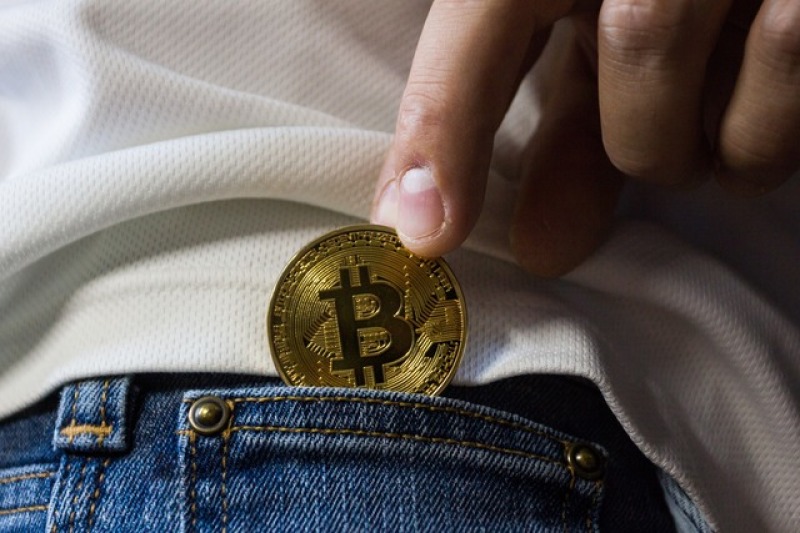
A federal jury in the United States has found Ian Freeman, a 42-year-old man from Keene, guilty on all charges related to money laundering, conspiracy to launder money, operating an unlicensed money-transmitting business, and tax evasion. United States Attorney Jane E. Young made the announcement.
Ian Freeman was convicted of money laundering and operating an unlicensed money-transmitting business after using bitcoin to launder over $10 million from romance scams and other internet frauds. He failed to register his interaction with the Financial Crimes Enforcement Network and disabled "know your customer" features on his bitcoin kiosks, enabling him to cater to fraudsters and earn over $1 million in fees.
Freeman's Underground Financial Network Using Names of Religious Organizations
During the investigation, it was discovered that Ian Freeman and his accomplices opened and ran accounts at various financial institutions under the names of churches such as the Shire Free Church, the Church of the Invisible Hand, the Crypto Church of New Hampshire, and the NH Peace Church. Freeman instructed victims of scams purchasing bitcoin to lie to the financial institutions and claim their deposits were church donations. From 2016 to 2019, he evaded taxes and hid his income from the Internal Revenue Service. Freeman is set to be sentenced on April 14, 2023.
"Scammers who victimize vulnerable individuals often rely on money launderers like Ian Freeman to cover their tracks and get away with their crimes," said U.S. Attorney Jane Young in a report from the U.S. Department of Justice. She added that Freeman's swift conviction conveys that this kind of money laundering will not be tolerated. Disrupting the methods used by scammers to hide their activities is a crucial goal of federal authorities, and this prosecution is a significant step toward achieving that goal.
According to the Shore News Network, the FBI has announced that Ian Freeman operated a large-scale, multi-million dollar virtual currency business under the guise of a religious organization receiving charitable contributions, breaking numerous laws to evade detection. As a member of this criminal conspiracy, Freeman took advantage of unknowing victims' emotions and bank accounts to enrich himself. The FBI carried out the investigation, IRS Criminal Investigations, the United States Postal Inspection Service, and the National Cryptocurrency Enforcement Team.
The Department of Justice Tax Division also provided significant assistance in the case. The matter is being prosecuted by Assistant U.S. Attorneys Georgiana L. MacDonald, John Kennedy, and Seth R. Aframe.
Also Read: Retired Pastor In Pennsylvania Surrenders After Stealing $350K from Church
Ian Freeman's Defense Team Presents Counterarguments in Money Laundering Trial
During the trial, Freeman's lawyer, Mark Sisti, told the jury that the government's case against Freeman was "absolute nonsense" and accused them of leaving out details that did not support their case. He argued that Freeman was a gentle, non-violent man who helped victims of scams and even assisted with cryptocurrency-related investigations.
As reported by Yahoo! News, the churches involved in his operation were fundamental institutions, Sisti said, that had set up an orphanage in Uganda and helped local businesses in New Hampshire establish bitcoin payment systems. Sisti claimed that Freeman operated his business openly and kept records of his transactions on his computer, including pictures of his customers' driver's licenses.
He also argued that Freeman often turned down to do business with doubtful customers. One of the customers was an undercover agent who claimed to be a heroin dealer. Sisti said the agent deposited $20,000 in one of Freeman's bitcoin kiosks even after Freeman told him he wouldn't do business with him in person as he had requested. Sisti also challenged the government's assertion that Freeman ignored "red flags" with his customers and turned a blind eye to scammers.
He mentioned the case of a 76-year-old woman who transferred her life savings of $755,000 to a romance scammer over six days and then allegedly traded the money for bitcoins through Freeman, who charged a 10% fee. Sisti asked the jury what bank the "little old lady" used that was "so highly regulated" yet overlooked the classic red flags of her withdrawing such large sums of money in less than a week.
Related Article: California Church Administrator Charged With Fraud, Theft Of Over $360k From Youth Ministry, Food Pantry


















